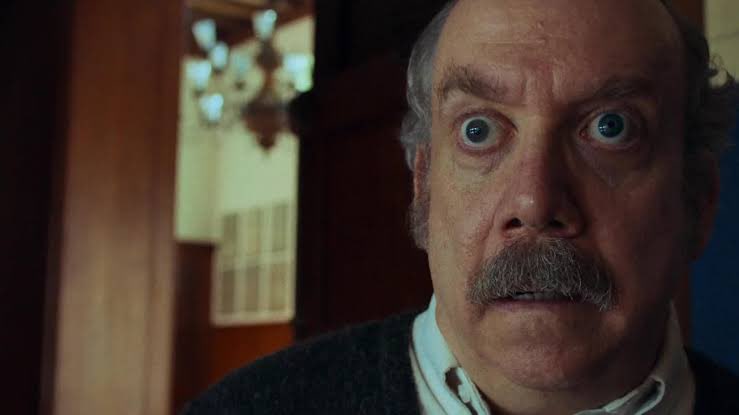Alexander Payne’s new film, “The Holdovers,” is about the makeshift families we find in the most unexpected places and the ways they can impact us even when we have shut out the world. While this lesson has been visited in film time and time again, “The Holdovers” still feels original as it surprises audiences with its intelligence, sincerity and realistic characters.
Paul Giamatti plays Paul Hunham, an unpopular ancient history teacher at the prestigious all-boys boarding school, Barton Academy. Hunham is a smelly, guarded and callous grump with almost no friends or family. His life consists of reciting his verbose knowledge of antiquity and giving failing grades to his entitled students. This Christmas, he has been forced into overseeing the “holdovers,” the small group of students who, for various reasons, do not have a place to go over the Christmas holiday and must remain on the cold, empty New England campus.
Five boys have been left behind this year, and, already feeling alone and rejected, their anger quickly erupts onto one another as the holiday season exacerbates their pain and isolation. Hunham only makes their stay more tortuous by doing the one thing he knows how to do: assigning daily homework and reading material. Also holding over at Barton is the school’s cook, Mary (Da’Vine Joy Randolph), who, having just lost her son in Vietnam, carries the weight of grief as she tries to get through each passing day.
However, due to a turn in events, all but one of the students are able to leave the campus by the end of the first act, leaving only Paul, Mary and Angus (Dominic Sessa), an intelligent yet jaded young man battling personal demons and a fraught family life. The three of them have collided with each other at difficult intermissions in their lives, and, though closed off and antagonizing at first, over the next week, they slowly open up and make lasting impacts on each others’ lives.
While the story of unlikely strangers coming together and learning from each other over the holidays is hardly original, what sets “The Holdovers” apart is that its characters seem so lived in and fleshed out. They have the deep contours and complexities of real people, which slowly surface as the story progresses. Thus, the reveals and plot turns are well-earned and hardly cliched. Punctuated by tender moments, the film remains consistently funny throughout. The characters each have razor-sharp wits and get moments to show it. Each actor brilliantly executes every emotional pit and comedic high point.
The film’s grainy 70mm offers a layer of warmth and evokes the 1970s in which it is set. It feels like a movie from that period without trying too hard to be a period piece or a present-day satire of film from that era. Somehow, “The Holdovers” also feels incredibly original and relevant to the present day. Anything that may be a cliche is so because these characters are not the first people, and hardly the last, to experience the things they are. The film shows that while the world can be cold, lonely and unfair, one can still find comfort and friendship in the most unexpected places.







































































































































































































